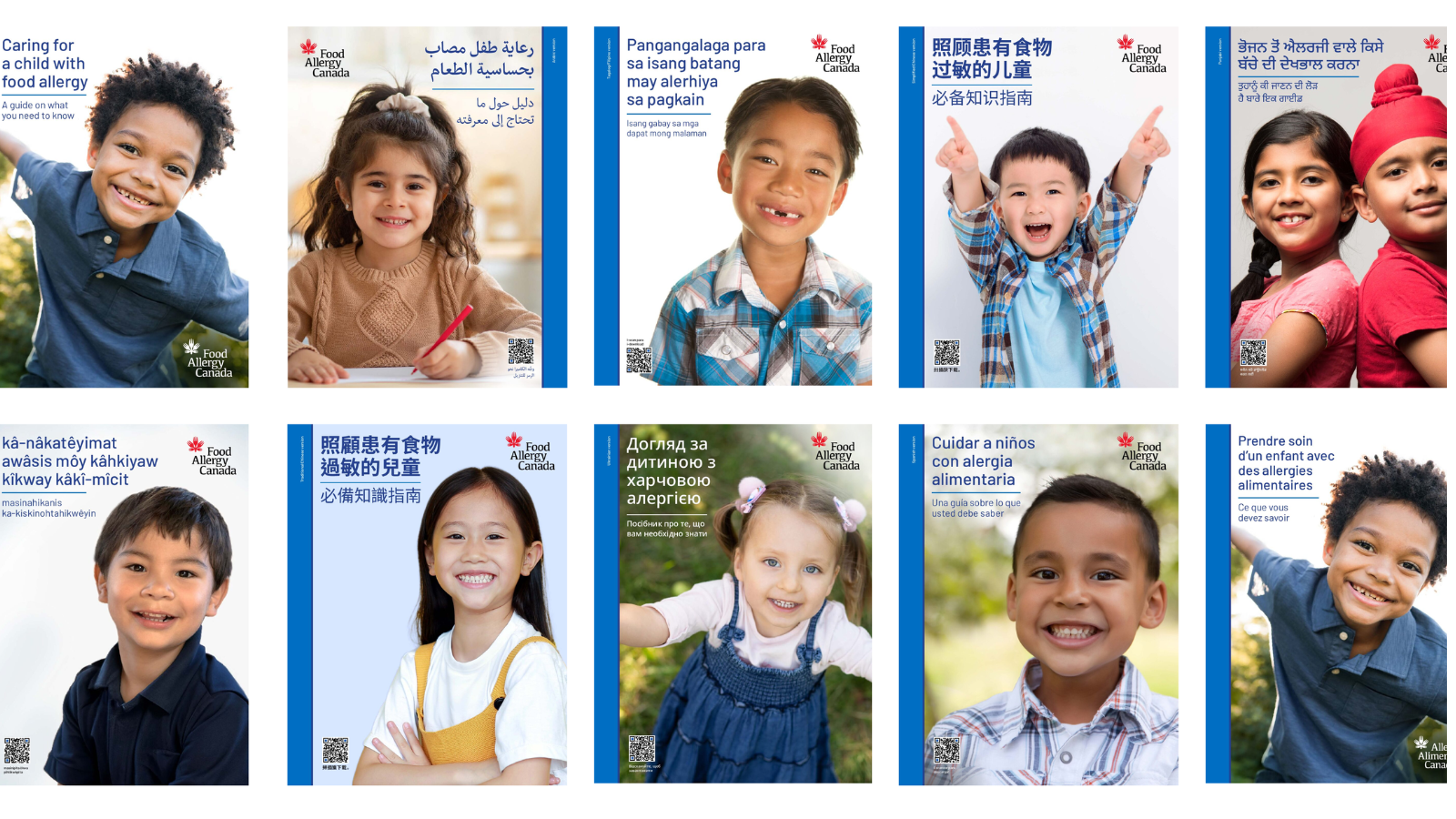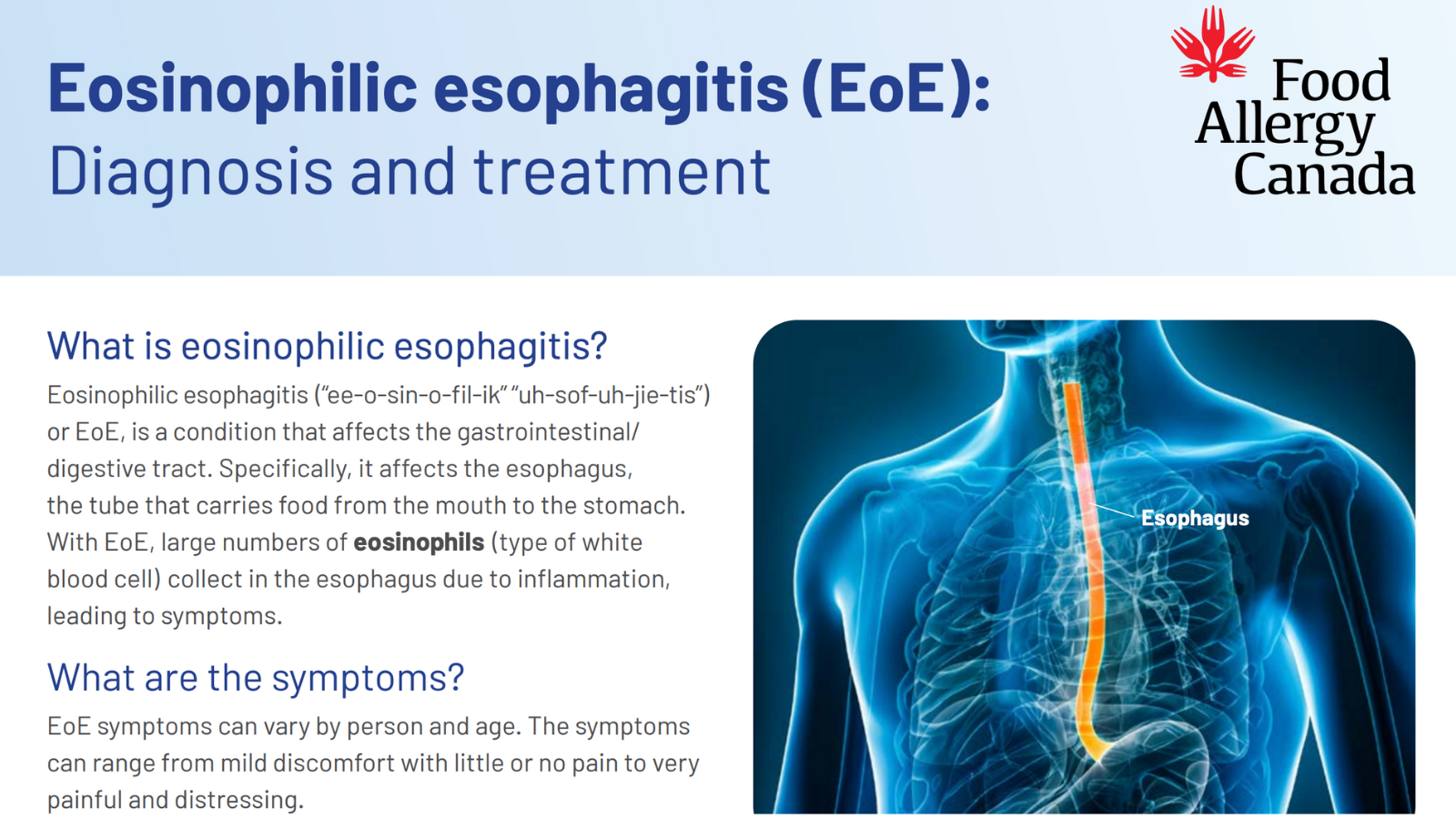
We have information for family physicians on food allergy, and we can help you better support your patients with this medical condition. Be sure to also tell your patients about us, so they can benefit from our educational resources and support services.
Our educational materials are medically-reviewed and scientifically-based and we are kept updated on emerging research through our Healthcare Advisory Board. Below are key topics for you and your colleagues to know around food allergy, as well as additional resources for both you and your patients.
Prevention guidance
Recommendations for the introduction of common allergens to infants has changed over the last few years as research has emerged on ways to help prevent the development of food allergy in babies.
In 2019, the Canadian Paediatric Society (CPS) released recommendations on the timing of early introduction of allergenic foods for high-risk infants. The guidance is to actively offer non-choking forms of foods containing common allergens (e.g. peanuts, egg) around 6 months of age, but not before 4 months, as this can be effective in preventing food allergy in some infants. This specific timing is reinforced, along with other recommendations, in the position statement co-published by CPS and the Canadian Society of Allergy and Clinical Immunology (CSACI) in 2021.
The recommendations on timing represent a dramatic shift from previous advice to parents and caregivers regarding the introduction of common allergens in a child’s diet.
Infants who are not considered high risk should start to receive complementary foods when they are around 6 months of age and show signs of developmental readiness.
Resources for you
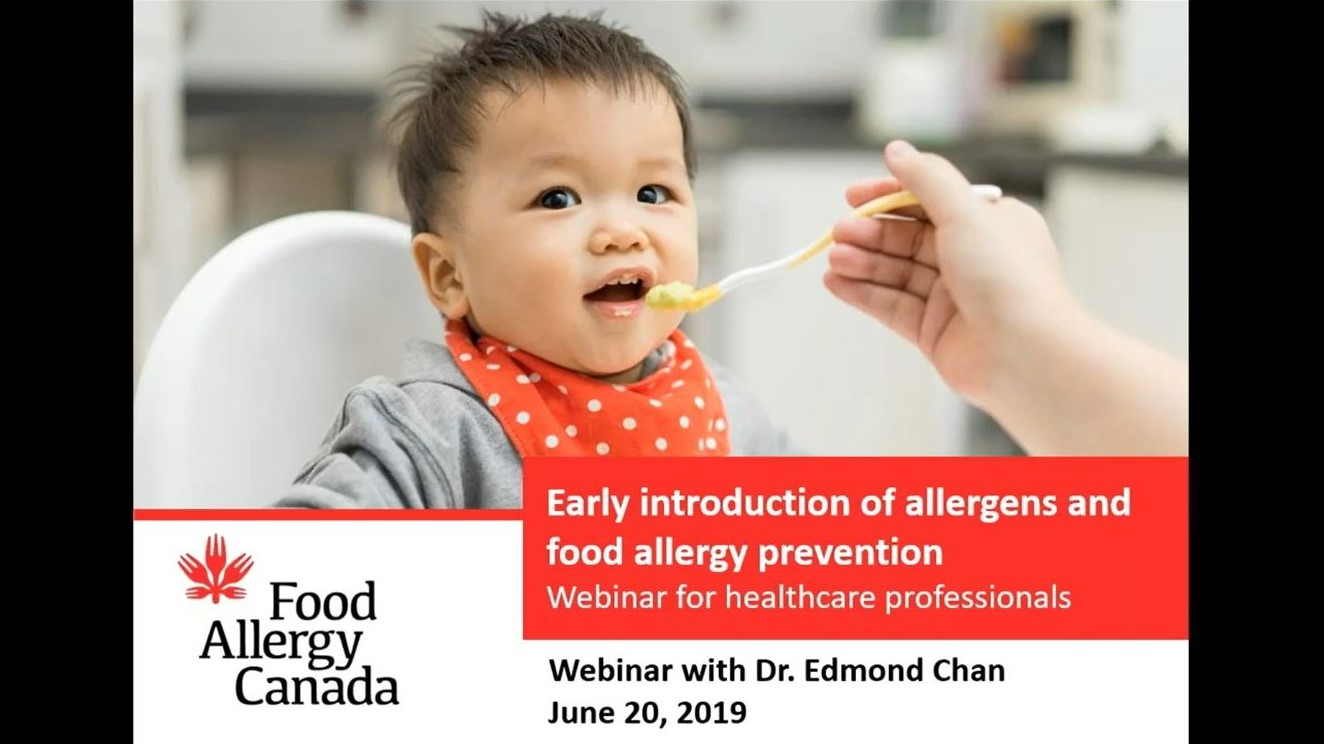 Webinar: Early introduction of allergens and food allergy prevention
Webinar: Early introduction of allergens and food allergy prevention Presented by Canadian pediatric allergist Dr. Edmond Chan, a co-author of the CPS practice point on the introduction of allergenic foods.
Learn what constitutes high-risk of developing food allergy in babies, why the recommendations have changed, a look into the research around this topic and more.
Patient resources: order printed materials for free through our order form located at the bottom of the page
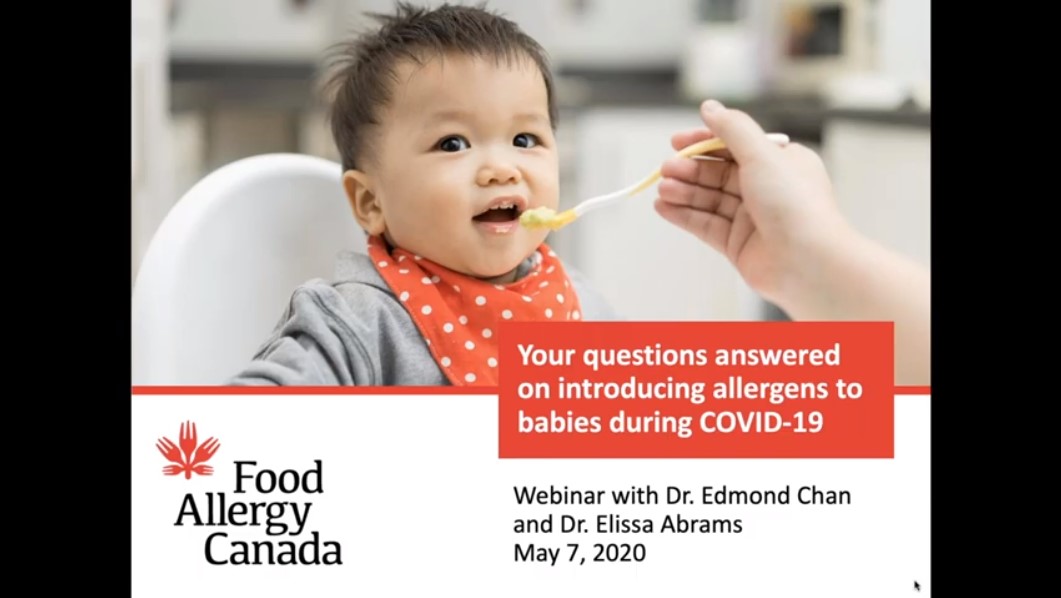 Webinars for families
Webinars for familiesShare the following webinars with families.
A 2020 Q/A session on introducing allergens to babies during COVID-19, and beyond with the co-authors of the CPS practice point, Dr. Elissa Abrams and Dr. Edmond Chan.
An insightful and patient-friendly overview of the updated guidance on the early introduction of allergens presented by Dr. Elissa Abrams.
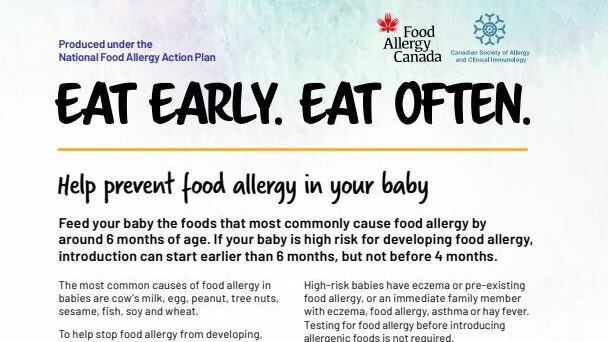 Eat Early. Eat Often. – practical guide on early introduction
Eat Early. Eat Often. – practical guide on early introductionProduced under the National Food Allergy Action Plan, this visual and easy-to-understand resource includes practical tips on feeding babies early, recipes for different allergenic foods, and more.
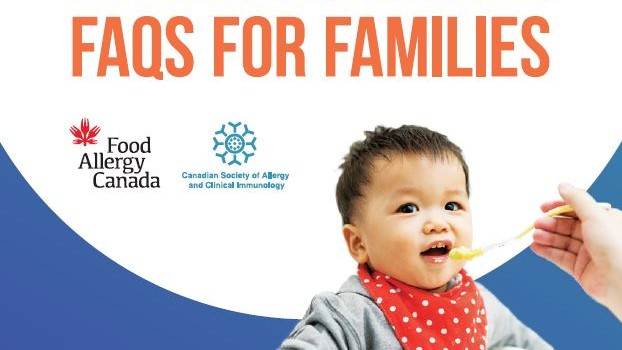 Frequently Asked Questions
Frequently Asked QuestionsProduced in collaboration with the CSACI, this detailed FAQ document provides more in-depth information for parents on early introduction.
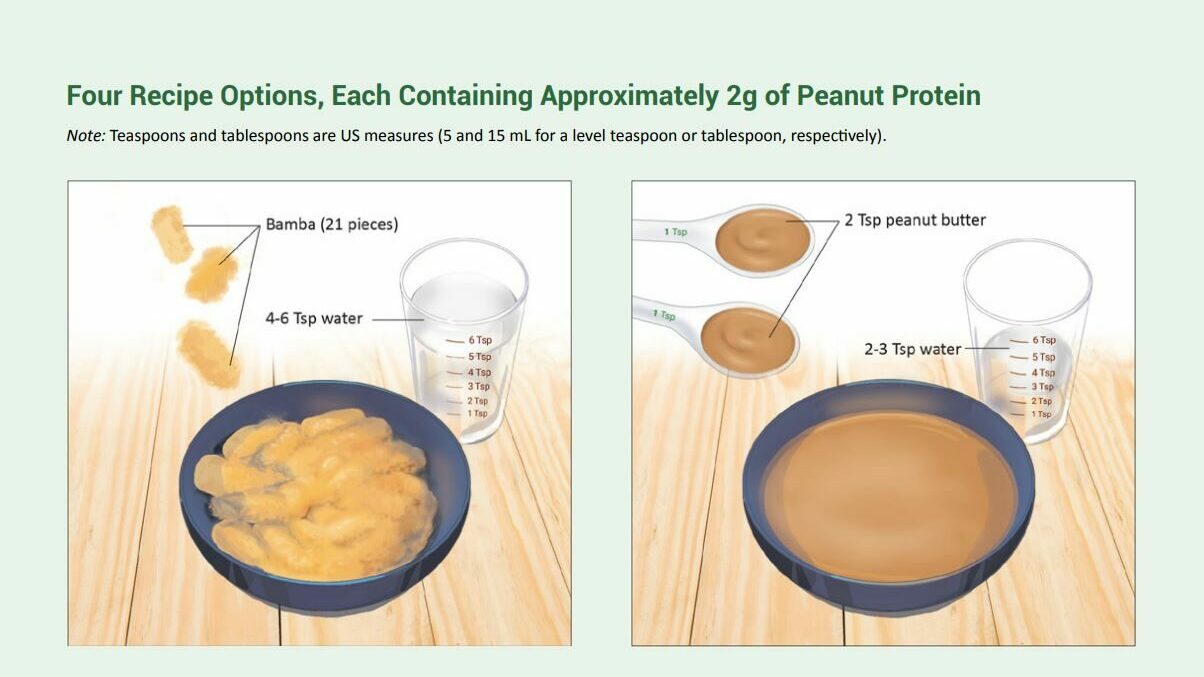 Recipe options for home feeding infants at low risk
Recipe options for home feeding infants at low riskFour recipe options for the home feeding of peanut protein to babies at low risk of an allergic reaction to peanut.
Source: 2017 NIAID (National Institute of Allergy and Infectious Diseases) guidelines. Refer to the CPS’ recommendations on the specific timing of early introduction of allergenic foods for high-risk infants.
Additional resources for you and your patients:
Order printed materials for free through our order form located at the bottom of the page
Resources for you
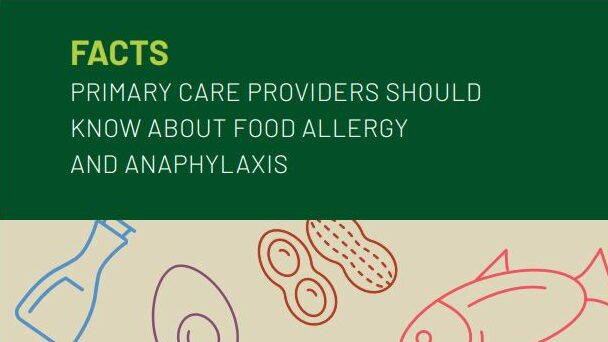 Facts for primary care providers
Facts for primary care providersLearn key facts, including information about early introduction, diagnosis, treatment with epinephrine, and more!
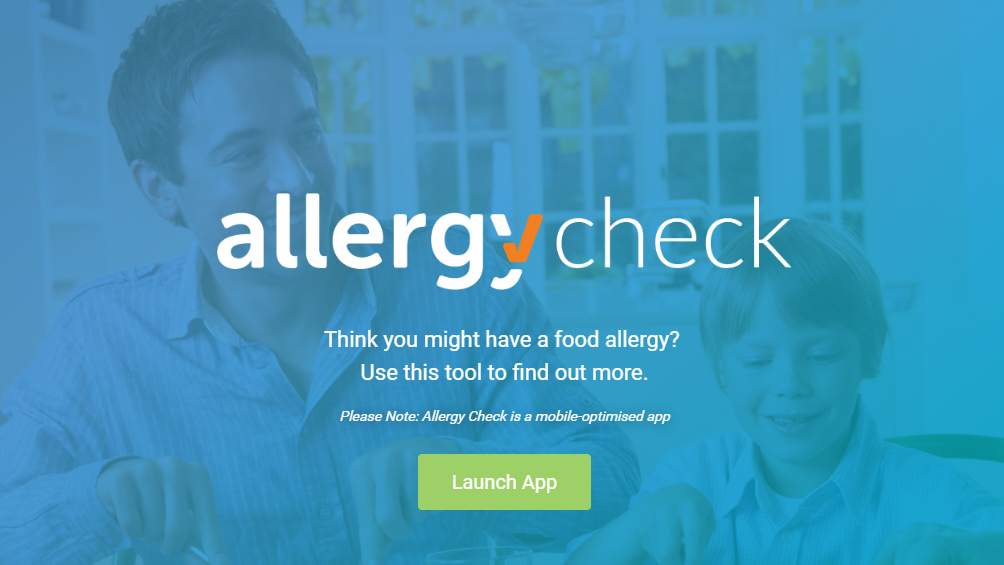 Assessment tool: Allergy Check
Assessment tool: Allergy CheckShare this tool with patients, it helps identify whether specific symptoms may be caused by a food allergy and if advice from an allergist is recommended.
Resources for patients
This guide for caregivers, like grandparents, babysitters, and coaches, has essential information for managing food allergy and anaphylaxis. It’s very visual, making it easy to follow along and understand, even if English is not the primary language.
Note: Research with patients of children with food allergy indicated a gap in knowledge and support with extended family and others. This resource fills this gap and helps parents feel more confident when leaving children with caregivers.
Download these one-page topic sheets for your patients on food allergy and anaphylaxis, stress and anxiety, epinephrine, diagnosis, daily management, and myths and facts.
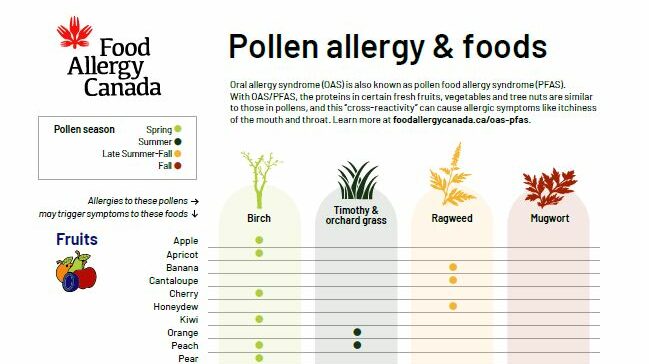 Pollen allergy and foods: chart
Pollen allergy and foods: chartShare this one page visual chart on oral allergy syndrome/pollen food syndrome to learn which foods may trigger symptoms in people with allergies to various pollens.
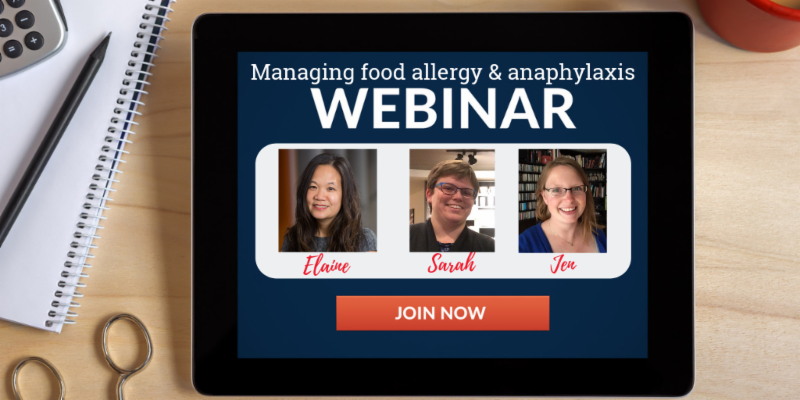 To support the newly diagnosed
To support the newly diagnosedTell your patients about our small-group webinars and resources to help them manage their food allergy with confidence.
Being diagnosed with food allergy is life-changing and can feel overwhelming. Our resources have been validated by research to significantly impact quality of life.
Ensure your patients get credible information and support right from the beginning.
Order form
Order any of the above materials for free, just complete this form and we’ll take care of the rest.


